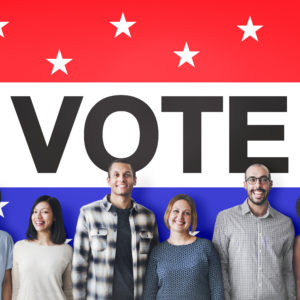The City of Detroit is now engaged in a federal lawsuit over its apparent failures to keep voter rolls in clean shape. The early facts of the case paint a disturbing picture for a state that could determine the outcome of the 2020 Presidential Election by a hairline margin yet again. Motown also serves as a warning signal for other states about the pitfalls of failing to properly handle voter rolls.
U.S. and Michigan laws set standards for how local election officials must keep voter registration records current and updated on a timely basis. The rules are not complicated: remove the dearly departed; cancel grandma’s file after she moves to Florida; keep tabs on who’s an ineligible felon; don’t let children vote; and, if all else fails—keep a list of registrants whose addresses have gone bad and are ghosting you on all fronts.
To many Americans, this may sound like simple bookkeeping, but the practice is under assault from partisans seeking political advantage and who have given it the label “voter purge.”
It’s a phrase you’ll probably be sick of hearing by November 2020. This alarmist expression is intended to frighten local elected officials and keep them from doing their basic duties of updating the voter rolls. Other politicians have an even worse reaction: they simply keep their hands off the machinery that keep lists current. That appears to be what’s happening in Detriot.
A federal lawsuit filed in the final weeks of 2019 lays out startling numbers: For every 100 adult U.S. citizens in the Motor City, there are 106 registered voters. Among existing registrants aged 85 years or older, more than 2,500 are actually dead – many passed during the Clinton presidency. More than 4,700 records are flagged for duplicate and triplicate concerns. Thousands are registered twice under their same names, birthdates, and addresses.
The suit even cites an example of someone claiming a birth year in “1823” when they registered in 2008.
Before the lawsuit was filed, federal law required the data findings be shared with Detroit so officials would have ample time for fixes. Nothing happened. Instead, the Michigan Democrat Party responded to the lawsuit (despite not actually having any part in it) by trying to downplay its importance. Chairwoman Christy Jenson was quick to note how the legal complaint does not mention “voter fraud” and inexplicably labeled it “a direct attack on people of color.”
The Public Interest Legal Foundation did not file a “voter fraud lawsuit” in Detroit. Those actions are typically brought by candidates trying to convince a court how specific violations of voting laws affected their ability to fairly win an election. Detroit registrants are not in hot water here—but the election officials sworn to serve them are.
And it’s not just Detroit. Recent research demonstrated that on Election Day 2018, 244 counties or cities across 29 states suffer from bloated voter rolls. This is a red and blue state problem. The data show that of the 29 states with this problem, 22 of those went for Trump in 2016. Dirty voter rolls affect all. Some counties are aware of the work to be done–others attack those trying to offer a helping hand and are eventually left fighting in a courtroom.
So, if the issue isn’t voter fraud and instead focuses on how dirty the voter rolls are, why is it worth a federal case? And why should more than Motown residents care?
One thing U.S. intelligence service made clear in the aftermath of the 2016 Election: voter rolls are now fair game for bad actors who want to watch the American political system burn.
There is no better environment for a state-sponsored election system hacker than a city or state awash in untrustworthy voter records. A successful hack will be measured in the length of recovery time plus the related public distrust for the affected system going forward.
Activists who oppose improved list maintenance efforts in Detroit with racial and violent rhetoric are only clearing the way for vandals. Voter registration—at its most basic level—is an essential service equally important to water treatment, fire rescue, and law enforcement.
The voters of Detroit–and America– deserve better.

